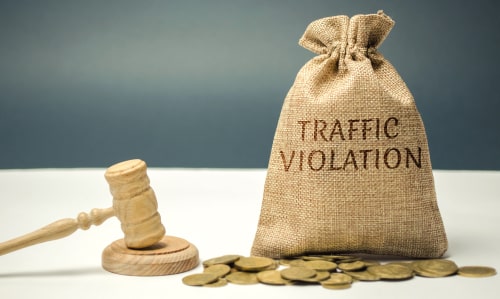1425 McHenry Road, Suite 204, Buffalo Grove, IL 60089
●Free Initial Consultation
Recent Blog Posts
How Scott’s Law Protects First Responders in Illinois
 When emergency responders are on the side of the road assisting during an incident, safety is vital. In Illinois, Scott’s Law is a crucial piece of legislation that aims to protect these brave individuals who put their lives on the line to serve the community. This law not only enhances road safety but also serves as a reminder of our collective responsibility to ensure the well-being of those who respond to emergencies. An Illinois lawyer can help if you get charged with violating this law.
When emergency responders are on the side of the road assisting during an incident, safety is vital. In Illinois, Scott’s Law is a crucial piece of legislation that aims to protect these brave individuals who put their lives on the line to serve the community. This law not only enhances road safety but also serves as a reminder of our collective responsibility to ensure the well-being of those who respond to emergencies. An Illinois lawyer can help if you get charged with violating this law.
Background on Scott’s Law
Scott’s Law, or the Move Over Law, was established in honor of Lieutenant Scott Gillen from the Chicago Fire Department. Gillen tragically passed away after being hit by a driver while he was stationed on the shoulder of the Dan Ryan Expressway. This law mandates that drivers switch lanes when they come upon an emergency vehicle parked on the roadside, creating a safe area for emergency personnel to operate.
Mental Health's Role in Criminal Defense Strategies
 Mental health plays a crucial role in criminal defense strategies, as it can significantly affect the outcome of a case. An Illinois lawyer will often consider the mental state of each client when developing a defense strategy.
Mental health plays a crucial role in criminal defense strategies, as it can significantly affect the outcome of a case. An Illinois lawyer will often consider the mental state of each client when developing a defense strategy.
The Insanity Defense
One of the most well-known mental health defenses is the insanity defense. In Illinois, a defendant can be found not guilty by reason of insanity (NGRI) if there is proof that, at the time of the offense, the individual suffered from a mental disease or defect that rendered them unable to appreciate the criminality of the conduct or conform the behavior to the requirements of the law. If successful, the court may commit the defendant to a mental health facility for treatment instead of initiating a sentencing for prison.
False Accusations and Wrongful Arrest in Illinois
 Being accused of a crime you did not commit can be a terrifying and confusing experience. False accusations and wrongful arrests happen more often than many people realize. If you find yourself in this difficult situation, it is crucial to understand your rights and take the proper legal steps to protect yourself. An Illinois lawyer can help you strategize the best next steps forward with you.
Being accused of a crime you did not commit can be a terrifying and confusing experience. False accusations and wrongful arrests happen more often than many people realize. If you find yourself in this difficult situation, it is crucial to understand your rights and take the proper legal steps to protect yourself. An Illinois lawyer can help you strategize the best next steps forward with you.
Know Your Rights During an Arrest
The first thing to remember is that you have constitutional rights, even when arrested. Illinois law enforcement officers must follow specific procedures during an arrest. They cannot use excessive force, and you have the right to remain silent and request an attorney. Do not resist arrest, as this could lead to additional charges against you. Comply with the officers’ instructions, but do not answer any questions until you have legal representation.
Can You Get a DWI Charge Dropped?
 A DWI (driving while intoxicated) charge can have severe consequences that impact your freedom, finances, and future. While a DWI charge should always be taken very seriously, in some cases, it is possible to get them dropped. An Illinois criminal defense lawyer can help you explore if a dismissal is likely in your specific situation.
A DWI (driving while intoxicated) charge can have severe consequences that impact your freedom, finances, and future. While a DWI charge should always be taken very seriously, in some cases, it is possible to get them dropped. An Illinois criminal defense lawyer can help you explore if a dismissal is likely in your specific situation.
The Stop Itself Was Not Lawful
The very first thing a DWI defense attorney will look at is the legality of the initial traffic stop. Police must have proper reasonable suspicion that a traffic violation or crime has occurred in order to pull you over.
If the traffic stop is found to violate your Constitutional rights or lack enough evidence to justify reasonable suspicion, any resulting DWI charges could be dismissed by filing a motion to suppress evidence with the court. An attorney can review dashcam footage, statements, and other records to assess if there are reasonable grounds to challenge the validity of the stop.
Can You Get a Retail Theft Charge Dropped?
 Getting caught shoplifting can result in serious penalties like fines, probation, and even jail time. The stakes for your future are high. Sometimes, an Illinois criminal defense lawyer can negotiate with the prosecution to reduce or even drop your charges.
Getting caught shoplifting can result in serious penalties like fines, probation, and even jail time. The stakes for your future are high. Sometimes, an Illinois criminal defense lawyer can negotiate with the prosecution to reduce or even drop your charges.
When Evidence is Weak or Nonexistent
Getting a case thrown out is most realistic when the evidence against you is flawless. Suppose sloppy police work results in gaps in the evidence trail or unclear records of your arrest and inventory of items. In that case, an attorney can often successfully argue to get charges dismissed. If video footage of the incident is missing or fails to identify you shoplifting merchandise clearly, the prosecution will have difficulty proving their case, making dismissal a real possibility.
When Your Rights Have Been Violated
Another common way lawyers get charges dropped is by demonstrating that police violated your rights upon arrest or seizure of evidence. That information can typically be suppressed if you were detained and questioned improperly or arrested without probable cause. If evidence like CCTV footage or witness statements were obtained illegally by police, your lawyer can fight to bar them from your case. Getting key evidence thrown out often leaves the prosecution without enough proof to continue, allowing your attorney to pursue dismissal.
Contesting Your Traffic Citation During a Car Accident
 Traffic tickets happen, but sometimes they can happen unfairly during a car accident. You still have options to dispute unfair or inaccurate citations. It is essential to know that you do not have to just be silent if you receive an unfair ticket. You have rights, and an Illinois criminal defense lawyer can help you figure out how to fight for your rights with this ticket.
Traffic tickets happen, but sometimes they can happen unfairly during a car accident. You still have options to dispute unfair or inaccurate citations. It is essential to know that you do not have to just be silent if you receive an unfair ticket. You have rights, and an Illinois criminal defense lawyer can help you figure out how to fight for your rights with this ticket.
Respond Quickly
After receiving any traffic summons, immediately review the court date printed on the ticket. Mark calendars to ensure you attend this hearing or contact the court beforehand. Missing the initial court date almost automatically requires paying fines. Contest the violation early to avoid limiting options later.
Gather Case Materials
Next, compile evidence to refute the traffic allegations against you. Gather photos/videos documenting road conditions, witness statements, police reports, driving records printouts, or other relevant materials. If tickets often lack intricate details, build your evidence trail to reveal actual events more clearly. Any documentation weakening officers’ claims or strengthening your defense helps achieve ticket dismissal.
What to Do When You Get Arrested For Someone Else’s Drugs
 Getting arrested is traumatic enough on its own. But getting arrested for a crime you did not actually commit can turn your whole world upside down. If you have been wrongly accused of possessing illegal drugs that belonged to someone else, you need an Illinois lawyer on your side.
Getting arrested is traumatic enough on its own. But getting arrested for a crime you did not actually commit can turn your whole world upside down. If you have been wrongly accused of possessing illegal drugs that belonged to someone else, you need an Illinois lawyer on your side.
You Can Be Charged Even If They Are Not Your Drugs
Under Illinois law, you can be charged with drug possession even if the drugs did not actually belong to you. The prosecution only needs to prove that you exercised control over the area where the drugs were found. So, if illegal drugs are found in your car, purse, pockets, or a similar area, you could face charges. The fact that they were left there by someone else likely will not get you off the hook on its own.
Act Quickly To Build Your Defense
As soon as you are arrested or charged, get in touch with a criminal defense lawyer. An attorney can start working immediately to build a strong defense by gathering evidence and lining up witnesses. If illegal drugs were left in your possession without your knowledge, witnesses who can testify to those circumstances will be vital. An early consultation also gives your lawyer time to negotiate with the prosecution or identify any improper police procedures.
The Illinois Criminal Process for Domestic Violence Defendants
 If you have been accused of domestic violence in Illinois, it is vital that you understand the legal process and procedures in order to build the most robust defense. An Illinois lawyer can guide you through each step.
If you have been accused of domestic violence in Illinois, it is vital that you understand the legal process and procedures in order to build the most robust defense. An Illinois lawyer can guide you through each step.
The Arrest
Suppose the police are called for an alleged domestic incident. In that case, they will interview all parties, assess the situation, document any evidence of abuse, and make an arrest if they feel it is justified. Do not resist arrest or make any statements to the police without your lawyer present. The arrest means formal charges will be brought against you.
The Arraignment
Your first court appearance after arrest is the arraignment hearing. This is when formal charges are presented. You will enter a plea of guilty, not guilty, or no contest. The bail terms and pre-trial release conditions, like a no-contact order with the alleged victim, are also imposed.
Diversion Programs for First-Time Shoplifters in Illinois
 Being arrested for shoplifting can be a terrifying wake-up call, especially for first-time offenders who made a foolish mistake. While retail theft charges must be taken seriously, some first-time shoplifters may qualify for pretrial diversion programs that can lead to dismissal of charges. For the right candidates, diversion provides an opportunity to get your life back on track with an Illinois attorney.
Being arrested for shoplifting can be a terrifying wake-up call, especially for first-time offenders who made a foolish mistake. While retail theft charges must be taken seriously, some first-time shoplifters may qualify for pretrial diversion programs that can lead to dismissal of charges. For the right candidates, diversion provides an opportunity to get your life back on track with an Illinois attorney.
What is Diversion and How Can it Help?
Diversion programs are designed to give alternatives to criminal prosecution for select defendants. With retail theft diversion, instead of going through a traditional conviction and sentencing, eligible shoplifters enter into agreements that impose certain requirements. By completing classes, community service, counseling, and restitution as required, you can earn dismissal of the charges.
Illinois Supreme Court Allows for the Elimination of Cash Bail
 In 2021, the Illinois General Assembly passed the Safety, Accountability, Fairness and Equity-Today (SAFE-T) Act, which made a number of reforms to the state’s criminal justice system. Some of the most notable changes were known as the Pretrial Fairness Act, which eliminated cash bail for people who are arrested and charged with crimes. While this provision was originally meant to go into effect on January 1, 2023, legal challenges have been raised, and courts halted the implementation of these changes to the law. However, a recent ruling by the Illinois Supreme Court will allow the law to go into effect.
In 2021, the Illinois General Assembly passed the Safety, Accountability, Fairness and Equity-Today (SAFE-T) Act, which made a number of reforms to the state’s criminal justice system. Some of the most notable changes were known as the Pretrial Fairness Act, which eliminated cash bail for people who are arrested and charged with crimes. While this provision was originally meant to go into effect on January 1, 2023, legal challenges have been raised, and courts halted the implementation of these changes to the law. However, a recent ruling by the Illinois Supreme Court will allow the law to go into effect.
On July 18, 2023, the Illinois Supreme Court ruled that the Pretrial Fairness Act is constitutional. The court stated that the provisions of the law maintain the balance between the rights of criminal defendants and the rights of crime victims that is required by the Illinois Constitution. The stay on the implementation of the Pretrial Fairness Act will be lifted on September 18, 2023, and as of that date, cash bail will be abolished in Illinois.

















